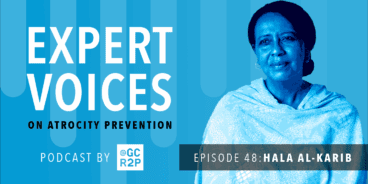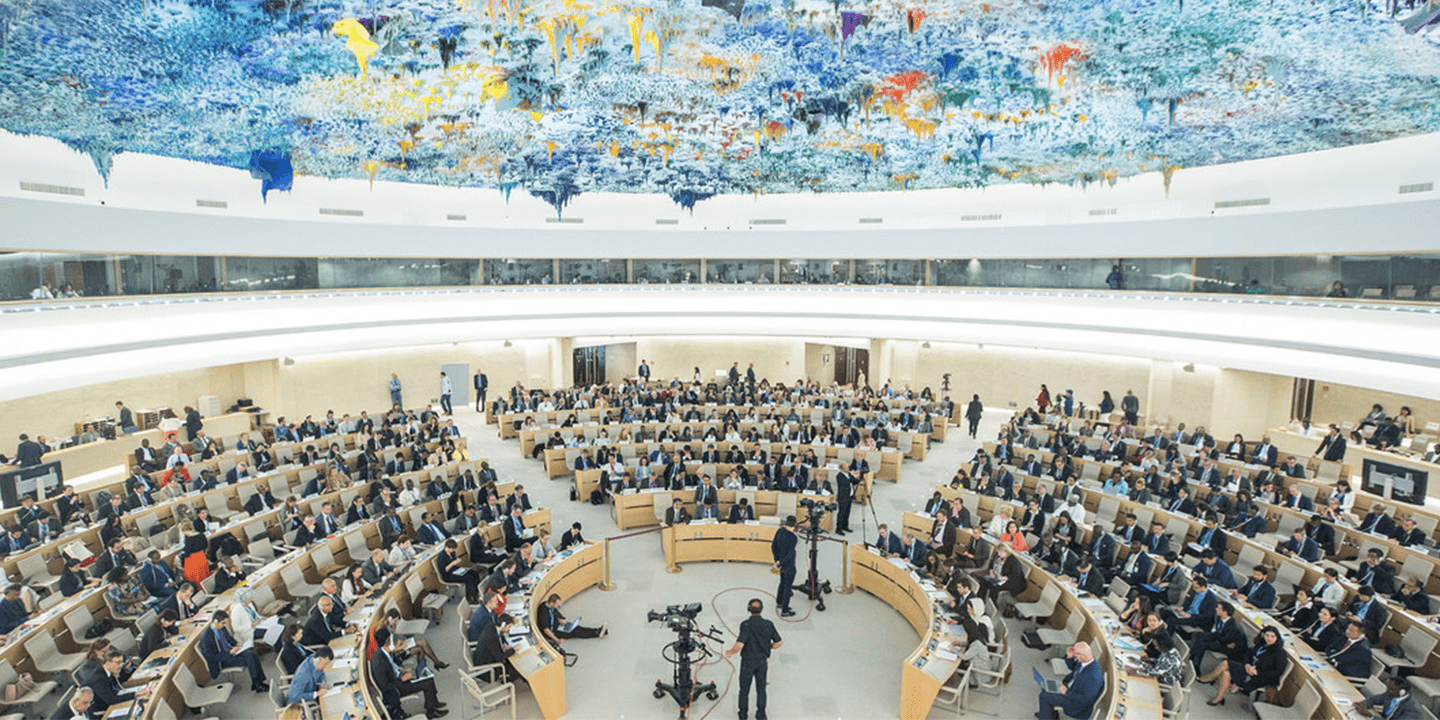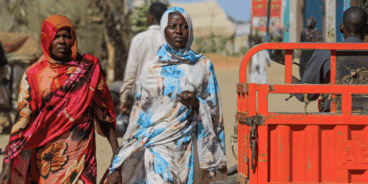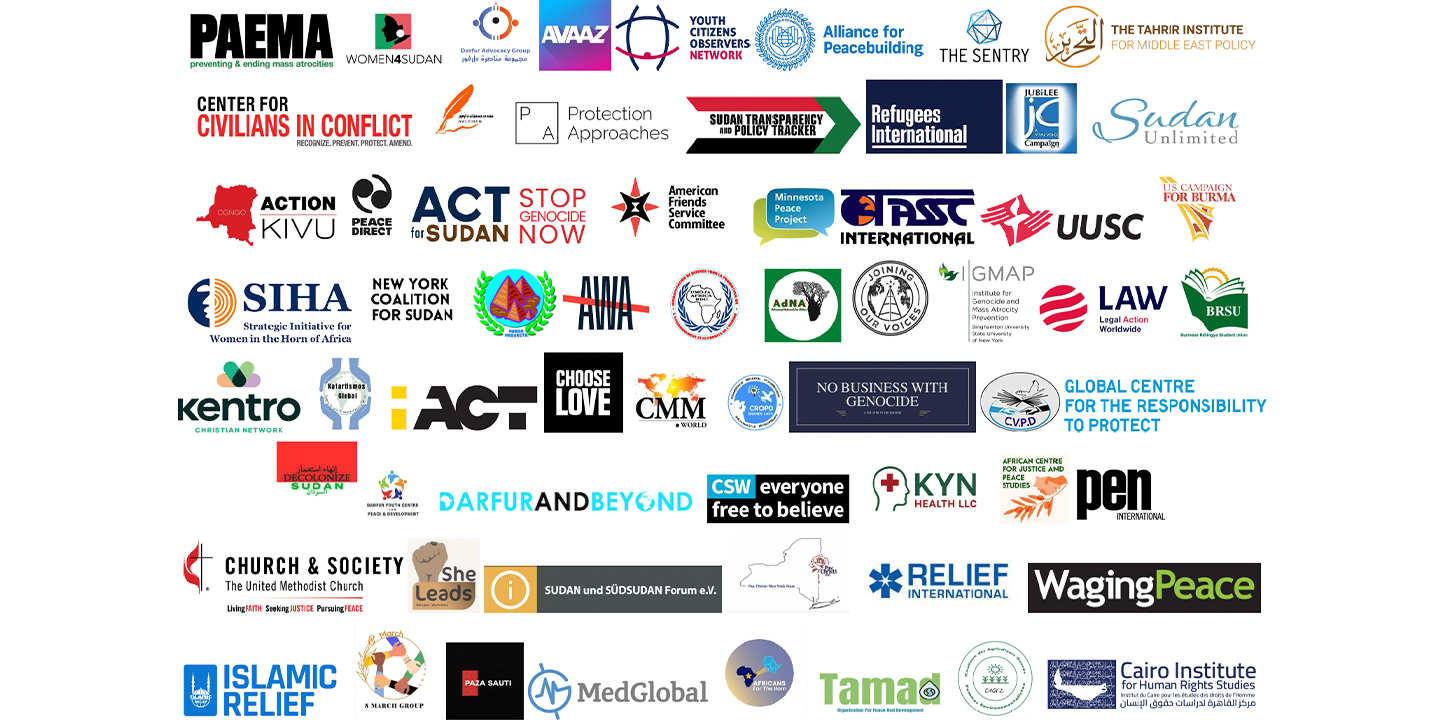

The Human Rights Council should establish an independent mechanism on Sudan
To Permanent Representatives of Member and Observer States of the United Nations (UN) Human Rights Council (Geneva, Switzerland)
Excellencies,
Following the outbreak of armed conflict in Khartoum and other areas of Sudan, on 15 April 2023, over one hundred civil society organisations called on States to convene a special session of the UN Human Rights Council and to establish an independent mechanism tasked with investigating human rights violations and abuses committed by all parties and advancing accountability in Sudan.
During a special session held on 11 May 2023, the Council adopted resolution S-36/1, which enhanced the mandate of the designated Office of the UN High Commissioner for Human Rights (OHCHR) Expert on Sudan. The resolution also enhanced monitoring and documentation of human rights violations and abuses committed since the 25 October 2021 military takeover, including those arising directly from the current conflict, as well as reporting to the Council.
Since the Council acted, however, violence has continued to escalate. Fighting between the Sudanese Armed Forces (SAF) and the Rapid Support Forces (RSF) shows no sign of abating. Human rights violations and abuses and violations of international humanitarian law by all parties to the conflict have had a serious impact on civilians, with thousands now reported dead, injured, or missing. Actual figures are likely to be much higher. Millions are experiencing high levels of acute food insecurity.
In West Darfur, the violence has taken on an increasingly interethnic dimension that is reminiscent of the crimes committed twenty years ago, some of which may amount to crimes under international law. The RSF and their allied Arab militias have deliberately targeted non-Arab communities, notably the Massalit ethnic group, and destroyed displacement camps and sites, killing and injuring civilians, including those who were fleeing to Chad. Assailants also raped and gang raped dozens of women and girls,[2] while also targeting human rights defenders, including lawyers. Civilian casualties are also reported in other parts of Darfur, including South and North Darfur, where the risk of further harm to displaced communities inhabiting the area warrants greater attention.
The Council’s call in May for a cessation of violence, the establishment of full, safe and unhindered humanitarian access, the rehabilitation of basic infrastructure, a negotiated resolution of the conflict, and a recommitment to Sudan’s civilian-led transition remains unheeded. Civilians, in particular women and girls, who are at significant risk of sexual and gender-based violence throughout the country, continue to bear the brunt of the conflict.
Impunity is at the heart of the current crisis, and addressing it should be a priority. The failure of the international community to hold accountable those responsible for international crimes in Darfur decades ago has sent a dangerous message to all parties that they can continue to commit crimes with impunity. Though the UN Security Council referred the situation in Darfur to the International Criminal Court (ICC), the Council’s passivity in the face of Khartoum’s obstruction to the investigation sharply limited progress on cases, especially enforcing the arrest warrants issued by the ICC and gaining custody of fugitives, including former president Omar al-Bashir.
~ ~ ~
The UN Special Adviser on the Prevention of Genocide, the OHCHR, and the UN Special Representative for Sudan have all emphasised the preventive value of holding perpetrators to account, with the former stressing that “[w]hen perpetrators of past atrocities are not held accountable for their action, we are doomed to see history repeat itself. We need to unequivocally support accountability processes as we witness the resumption of violence across Sudan, including in Darfur, Blue Nile, and North and South Kordofan states.”
African bodies and mechanisms made strong pronouncements in support of investigations and accountability for grave violations. These include the Intergovernmental Authority on Development (IGAD), the African Union (AU), and the African Commission on Human and Peoples’ Rights (ACHPR). In a Communiqué, the IGAD Quartet Group of Countries for the Resolution of the Situation in the Republic of Sudan said it was “[a]ppalled by the reports of widespread serious human rights abuses including sexual violence targeting girls and women” and “[committed] to work closely with the international community to put in place a robust monitoring and accountability mechanism that will be instrumental in bringing perpetrators to justice.”
In a statement to the AU Peace and Security Council, the Chairperson of the AU Commission, Moussa Faki Mahamat, warned that “the risk of ethnic and racial tension and conflicts between local communities around the country is great” and that “[t]he longer the fighting continues, the greater the risk of a complete collapse of Sudan.” Regarding protection of civilians, he added: “We should coordinate the recording of any breaches […] and warn all parties about the risks they are exposing themselves to, in case of established violations.”
Last, in a resolution adopted at its 76th session, the ACHPR said it was “[a]larmed by the many violations taking place in the country, including excessive use of force, extrajudicial, arbitrary or summary executions, unlawful killings, arbitrary arrest and detention, torture, ill-treatment and enforced disappearance, sexual and gender-based violence, violations of freedom of opinion and expression, freedom of peaceful assembly and association, economic and social rights, as well as inter-communal violence” and called on the African Union to take urgent measures to put an end to the conflict in Sudan and restore peace and stability, including “[putting] in place a mechanism for monitoring, documenting and reporting on the perpetration of human rights and international humanitarian law violations by the warring parties including with particular attention to the situation in Darfur.”
In this context, and in line with the Council’s mandate to prevent violations and to respond promptly to human rights emergencies, the Human Rights Council should strengthen its action on Sudan. At its upcoming 54th session (11 September-13 October 2023), it should adopt a resolution establishing, without further delay, an independent mechanism with a mandate, among other elements, to:
(a) Undertake a thorough investigation into all alleged violations and abuses of international human rights law, violations of international humanitarian law and related crimes in Sudan, including those constituting crimes under international law;
(b) Establish the facts, circumstances, and root causes of any such violations and abuses;
(c) Collect, consolidate, analyse and preserve evidence, including of sexual and gender-based violence and ethnic violence, with a view to ending impunity and supporting future legal proceedings;
(d) Identify, where possible, those individuals and entities responsible; and
(e) Provide guidance on justice, including criminal accountability, reparations, and guarantees of non-recurrence.
As has been the case with other Council-established mechanisms, the mechanism on Sudan should be provided with all the administrative, technical, and logistical support and personnel necessary to enable it to carry out its mandate, in particular in the areas of fact-finding, legal analysis, translation and interpretation, and evidence-collection and preservation, including regarding sexual and gender-based violence and specialized ballistic and forensic expertise.
The mechanism should integrate a gender perspective and a survivor-centred approach throughout its work and ensure the complementarity and coordination of its effort with other efforts of the United Nations, the African Union, and other appropriate regional and international entities.
We thank you for your attention to these pressing issues and stand ready to provide your delegation with further information as required.
Sincerely,
- Act for Sudan
- ActionAid
- Action by Christians for the Abolition of Torture in the Central African Republic (ACAT- RCA)
- African Centre for Democracy and Human Rights Studies (ACDHRS)
- African Centre for Justice and Peace Studies (ACJPS)
- AfricanDefenders (Pan-African Human Rights Defenders Network)
- Africans for the Horn of Africa (Af4HA)
- Algerian Human Rights Network (Réseau Algérien des Droits de l’Homme)
- Amnesty International
- Angolan Human Rights Defenders Coalition
- Asian Forum for Human Rights and Development (FORUM-ASIA)
- Atrocities Watch Africa (AWA)
- Beam Reports – Sudan
- Belarusian Helsinki Committee
- Belgrade Centre for Human Rights
- Borderline-Europe – Menschenrechte ohne Grenzen V.
- Burkinabè Human Rights Defenders Coalition (CBDDH)
- Burundian Coalition of Human Rights Defenders (CBDDH)
- Cabo Verdean Network of Human Rights Defenders (RECADDH)
- Cairo Institute for Human Rights Studies (CIHRS)
- Cameroon Women’s Peace Movement (CAWOPEM)
- Central African Network of Human Rights Defenders (REDHAC)
- Centre for Democracy and Development (CDD) – Mozambique
- Centre de Formation et de Documentation sur les Droits de l’Homme (CDFDH) – Togo
- CIVICUS
- Coalition of Human Rights Defenders-Benin (CDDH-Bénin)
- Collectif Urgence Darfour
- Confederation of Sudanese Civil Society Organizations
- Consortium of Ethiopian Human Rights Organizations (CEHRO)
- CSW (Christian Solidarity Worldwide)
- DefendDefenders (East and Horn of Africa Human Rights Defenders Project)
- EEPA – Europe External Programme with Africa
- Ethiopian Human Rights Defenders Center (EHRDC)
- FIDH (International Federation for Human Rights)
- Fikra for Studies and Development
- Forum pour le Renforcement de la Société Civile (FORSC) – Burundi
- Free Press Unlimited
- Gender Centre for Empowering Development (GenCED) – Ghana
- Gisa Group – Sudan
- Global Centre for the Responsibility to Protect
- Gulf Centre for Human Rights
- Horn of Africa Civil Society Forum (HoA Forum)
- Human Rights Defenders Coalition Malawi
- Human Rights Defenders Network – Sierra Leone
- Human Rights House Foundation
- Human Rights Watch
- Institut des Médias pour la Démocratie et les Droits de l’Homme (IM2DH) – Togo
- International Bar Association’s Human Rights Institute (IBAHRI)
- International Commission of Jurists
- The International Federation of Women Lawyers (FIDA) Africa
- Interfaith International
- International Refugee Rights Initiative (IRRI)
- International Service for Human Rights
- Ivorian Human Rights Defenders Coalition (CIDDH)
- Jewish World Watch
- Jews Against Genocide
- Journalists for Human Rights (JHR) – Sudan
- Justice Africa Sudan
- Justice Center for Advocacy and Legal Consultations – Sudan
- Kamma Organization for Development Initiatives (KODI)
- Libyan Human Rights Clinic (LHRC)
- Malian Coalition of Human Rights Defenders (COMADDH)
- MENA Rights Group
- Mozambique Human Rights Defenders Network (MozambiqueDefenders – RMDDH)
- NANHRI – Network of African National Human Rights Institutions
- National Coalition of Human Rights Defenders – Kenya
- National Coalition of Human Rights Defenders – Somalia
- National Coalition of Human Rights Defenders-Uganda (NCHRD-U)
- Network of Human Rights Journalists (NHRJ) – The Gambia
- Network of the Independent Commission for Human Rights in North Africa (CIDH Africa)
- Never Again Coalition
- New Sudan Council of Churches
- Nigerien Human Rights Defenders Network (RNDDH)
- Pathways for Women’s Empowerment and Development (PaWED) – Cameroon
- PAX Netherlands
- PEN Belarus
- Physicians for Human Rights
- POS Foundation – Ghana
- Project Expedite Justice
- Protection International Africa
- REDRESS
- Regional Centre for Training and Development of Civil Society (RCDCS) – Sudan
- Rencontre Africaine pour la Défense des Droits de l’Homme (RADDHO)
- Réseau des Citoyens Probes (RCP) – Burundi
- Rights Georgia
- Rights for Peace
- Rights Realization Centre (RRC) – United Kingdom
- Salam for Democracy and Human Rights
- Society for Threatened Peoples
- Southern Africa Human Rights Defenders Network (Southern Defenders)
- South Sudan Human Rights Defenders Network (SSHRDN)
- Stop Genocide Now
- Strategic Initiative for Women in the Horn of Africa (SIHA)
- Sudanese American Medical Association (SAMA)
- Sudanese American Physicians Association (SAPA)
- Sudanese American Public Affairs Association (SAPAA)
- Sudanese Defenders Center for Legal Aid
- Sudanese Human Rights Initiative (SHRI)
- Sudanese Human Rights Monitor (SHRM)
- Sudanese Lawyers Democratic Front
- Sudanese Women Rights Action
- Sudan Evangelical Community Council
- Sudan Human Rights Hub
- Sudan NextGen Organization (SNG)
- Sudan’s Doctors for Human Rights
- Sudan Social Development Organisation
- Sudan and South Sudan ForumV.
- Sudan Unlimited
- SUDO UK
- The Tahrir Institute for Middle East Policy (TIMEP)
- Tanzania Human Rights Defenders Coalition (THRDC)
- The Institute for Social Accountability (TISA)
- Togolese Human Rights Defenders Coalition (CTDDH)
- Tunisian League for Human Rights (LTDH)
- Waging Peace
- Women Civil & Political Groups (Mansam)
- World Council of Churches
- World Evangelical Alliance
- World Organisation Against Torture (OMCT)
- Zimbabwe Lawyers for Human Rights
Related Content


Atrocity Alert No. 454: Sudan, Israel and the Occupied Palestinian Territory and the UN Human Rights Council
